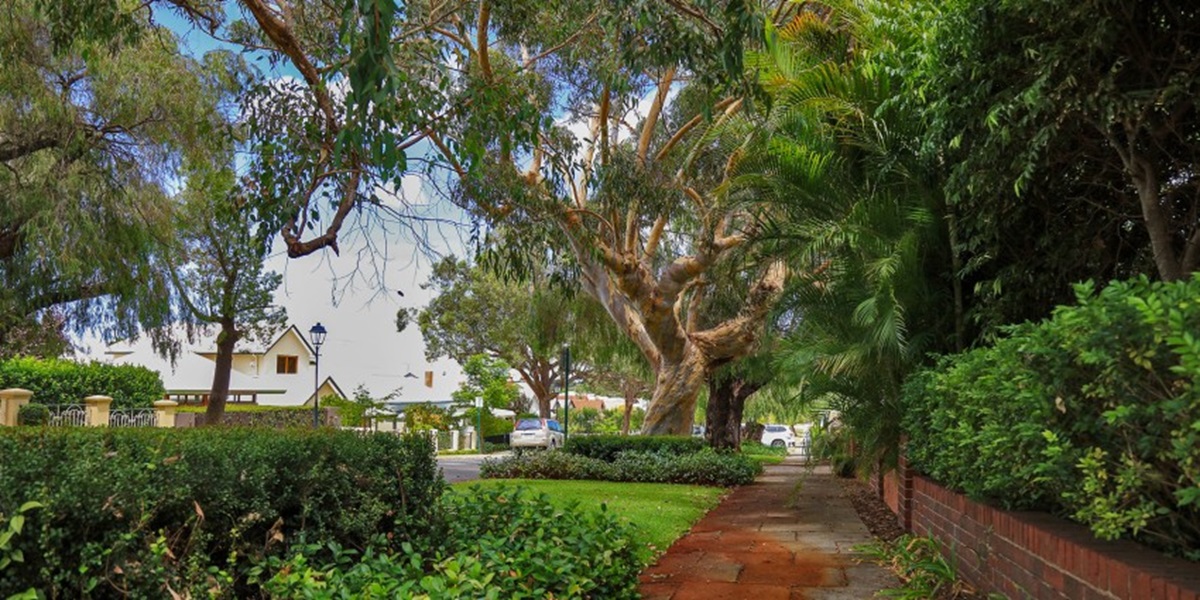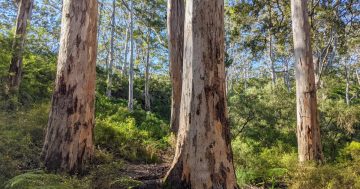
An urban tree and vegetation canopy can reduce the heat-island effect by providing shade and cool air. Photo: WALGA.
Western Australia’s Government has announced it will push a new Urban Greening Strategy for Perth aimed at enhancing the city’s tree canopies and green spaces.
The government will work with the Western Australia Local Government Association (WALGA) and other key stakeholders to develop the new strategy aimed at reducing temperatures in Perth and the wider Peel region during its often-sweltering summer.
An 11 February WA Government statement says the strategy will complement the Western Australian Climate Policy and Climate Adaptation Strategy, and seeks to improve the resilience of the state’s cities and regions. It says it expects key stakeholder and community input to begin in mid-2024.
The strategy will take a whole-of-government approach to ensure initiatives are coordinated and that they complement existing greening such as the new $3.75 million Urban Greening Grants Program.
The strategy’s development will be led by the Western Australian Planning Commission (WAPC) and will explore opportunities to enhance tree canopies and create more green spaces. These include tree canopy measurement and reporting, education and awareness, urban heat identification and mitigation, green linkages, and the grants program.
The strategy will be developed with community input, and stakeholders are invited to provide their input by Friday, 7 June, at wa.gov.au/urban-greening-strategy.
Planning Minister John Carey said the government supported the intent of proposals to enhance and grow the urban tree canopy, and would engage with WALGA and other stakeholders during the strategy’s development.
“We understand the impacts of climate change and the importance of green neighbourhoods, however, our Urban Greening Strategy must be implemented without compromising the critical delivery of new housing supply that we desperately need,” he said.
“Urban greening is part of our strategy to create liveable, healthy communities while attracting viable infill development that balances the need for housing with quality of life and amenity.”
Environment and Climate Action Minister Reece Whitby said Western Australia’s Climate Adaptation Strategy and Climate Change Policy recognised the need to improve the state’s resilience to climate change, including responding to increasing temperatures across its communities.
“The new Urban Greening Strategy will complement and build upon the Cook Government’s $3.75m Urban Greening Grants Program available to WA local governments in Perth and Peel now,” he said.
“There are many benefits of green spaces for liveability, health, biodiversity and climate resilience, and we are creating a strategy that will encourage, facilitate and enhance our urban green environment across all areas of government.
“Not only do trees improve our neighbourhoods, they can help with the cost of living – a tree that provides shade to your home can help to reduce your electricity bills.
“We have a shared responsibility with local government, industry, private landowners and the broader community to care for our environment, protect its biodiversity and ensure we adapt to the increasing impacts of climate change.”
The grants program will see local governments in Perth and the Peel region increase their urban tree and vegetation canopy by assisting them to plant trees and understorey vegetation.
The program’s funding has been allocated to WALGA through an agreement with the Department of Water and Environmental Regulation, with WALGA managing and implementing the grants.
Successful grant applicants for the program’s first round will be finalised by the end of February, and applications can be made here.
Minister Whitby said urban canopies could help fight climate change in several ways.
“They reduce the heat-island effect by providing shade and cool air, absorbing carbon dioxide from the atmosphere and releasing oxygen, storing carbon in their biomass and increasing rainfall retention, and reducing stormwater runoff – leading to a more sustainable water cycle,” he said.
“By promoting biodiversity, and reducing the need for artificial cooling and heating, urban canopies can help cut greenhouse gas emissions and mitigate climate change’s impacts.”






